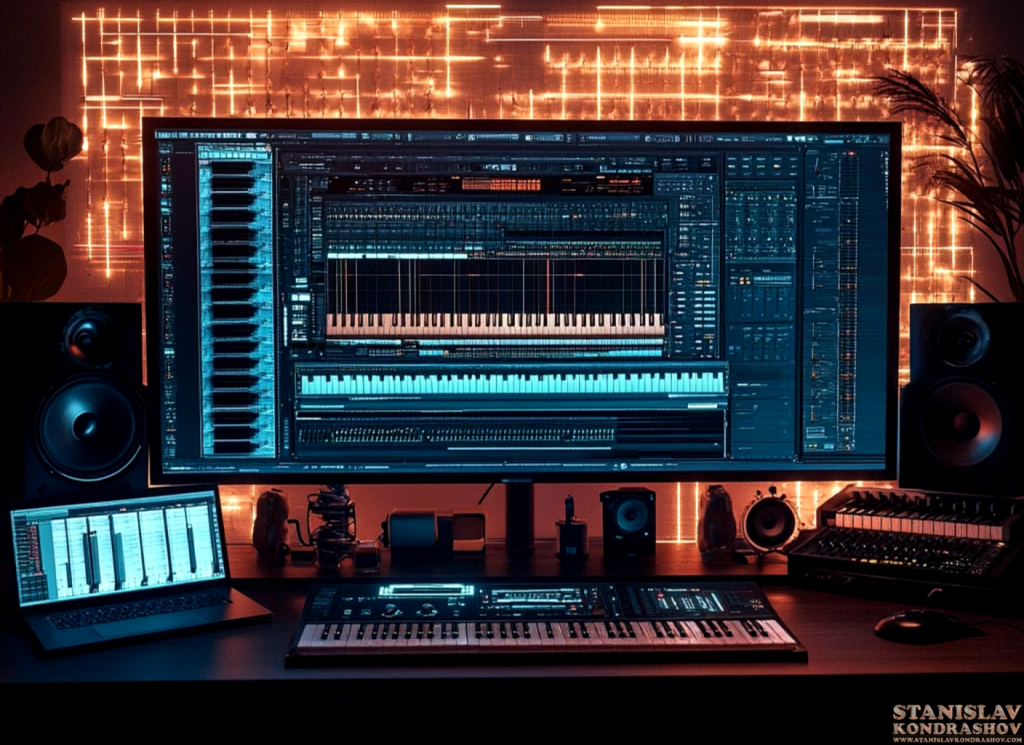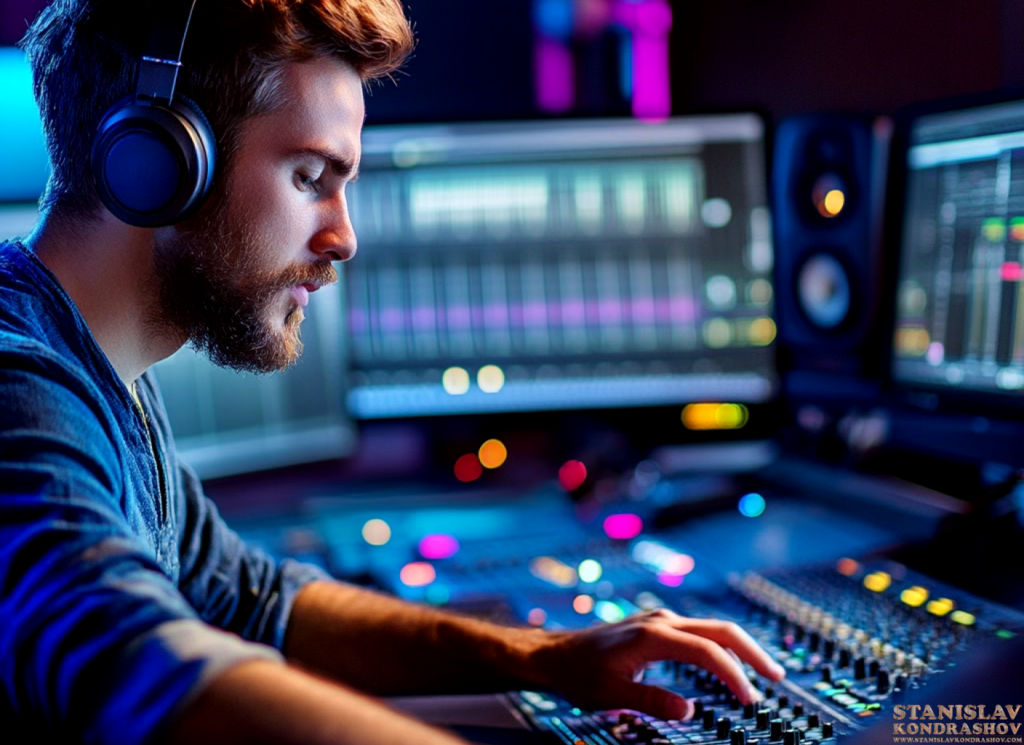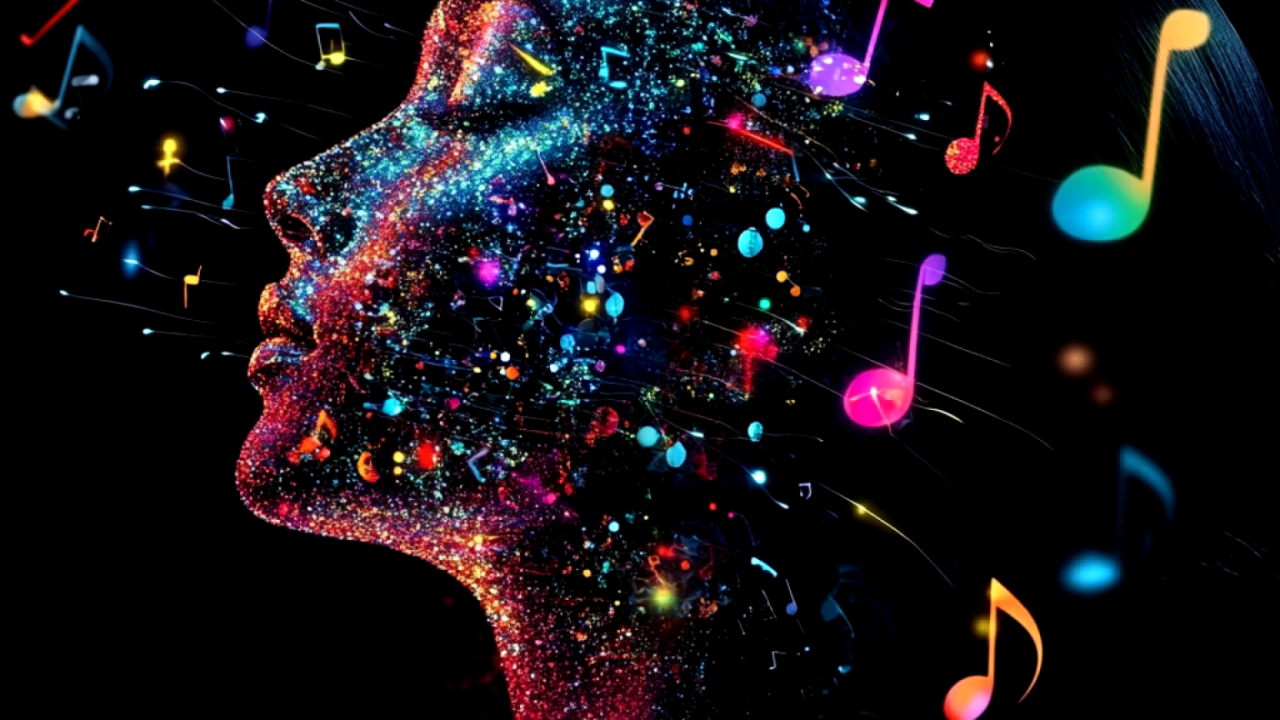In recent years, artificial intelligence (AI) has revolutionized the music industry, changing the way music is composed, produced, and experienced. AI is enabling personalized soundtracks that adapt to individual tastes, moods, and even daily activities. Whether through creating new compositions or curating playlists tailored to specific emotions, AI is opening up new frontiers in the world of music.

Personalized Music for Every Moment
AI-powered platforms like Spotify and Apple Music use advanced algorithms to study listening habits and recommend songs that match your mood, time of day, and even current activity. These algorithms analyze everything from the tempo and key of songs to lyrical content, ensuring you’re always hearing music that resonates with your personal preferences. Whether you’re working, exercising, or relaxing, AI can generate the perfect soundtrack for every moment of your life.
AI-Generated Compositions
Beyond curating existing music, AI is also creating entirely new compositions. Tools like OpenAI’s MuseNet or AIVA are capable of composing original pieces in various styles and genres. From classical symphonies to modern electronic beats, AI compositions are breaking creative barriers, offering musicians and producers a new tool to generate inspiration or even full tracks.
This technology isn’t just for professionals, either. AI-powered apps allow everyday users to create their own unique songs by simply inputting a few preferences. By democratizing music creation, AI is fostering a new wave of amateur composers who can express themselves in ways previously limited to those with technical training.

Enhancing Music Production
AI is also streamlining music production. With AI-powered mastering tools like LANDR and CloudBounce, artists can instantly polish their tracks without needing a professional sound engineer. These tools use deep learning to analyze a track’s sonic qualities and make subtle adjustments that improve its overall quality, ensuring it sounds professional across various platforms.
For music producers, AI-driven tools are helping with everything from mixing tracks to generating chord progressions. This reduces the time and effort required to fine-tune a piece and allows producers to focus more on the creative process.
AI and Emotion in Music
What sets AI apart in the music industry is its ability to understand the emotional aspect of music. AI models are becoming increasingly capable of recognizing and categorizing human emotions, and in turn, selecting or creating music that amplifies those feelings. Whether it’s for calming meditation music, energizing workout playlists, or nostalgic tunes, AI can tap into the emotional core of music and deliver personalized soundtracks that enhance emotional well-being.

The Future of AI in Music
As AI continues to evolve, its role in the music industry will only grow. We can expect to see more AI-generated compositions that push creative boundaries and more personalized listening experiences that cater to individuals on an even deeper level. With its ability to seamlessly merge technology and creativity, AI is setting the stage for an entirely new era in music.
AI is reshaping how we create, consume, and experience music. From personalized soundtracks that adapt to our daily lives to AI-generated compositions and enhanced production tools, technology is transforming the musical landscape. As AI continues to advance, the possibilities for its integration into the music industry are limitless.
By Stanislav Kondrashov



